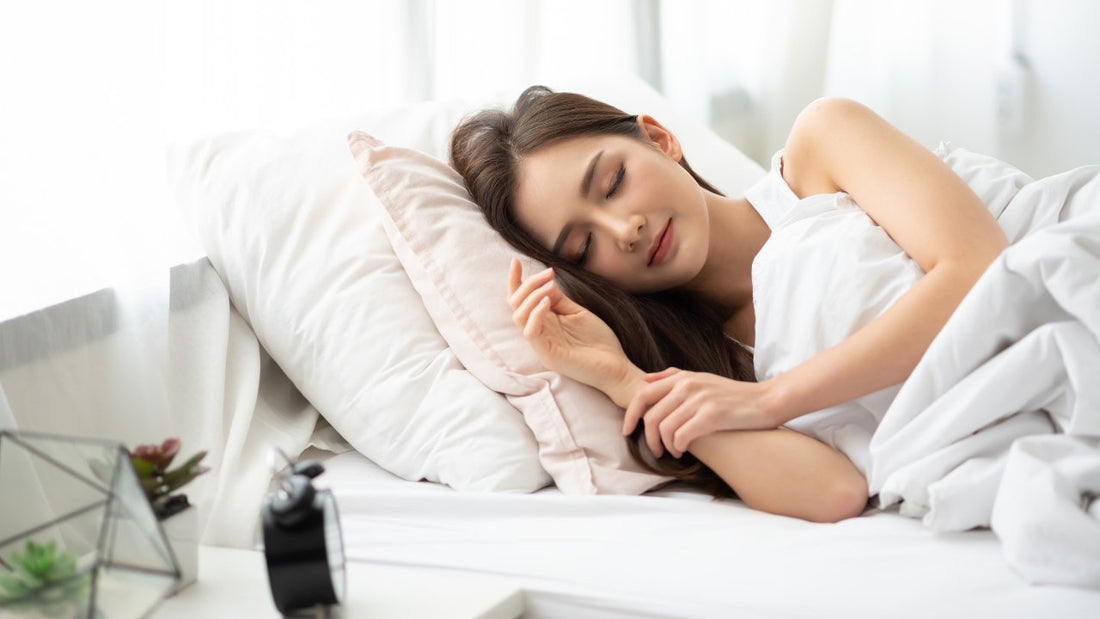
Can You Cure Sleep Apnea Naturally at Home Without CPAP?
Share
For those who suffer from sleep apnea, the most common treatment recommended by doctors is CPAP therapy (Continuous Positive Airway Pressure). A CPAP mask delivers a steady stream of air, keeping the airway open during sleep to prevent breathing interruptions. While this method is highly effective, some individuals find it uncomfortable or difficult to use long-term. This leads many people to wonder: Can you cure sleep apnea naturally at home without CPAP?
While there's no guaranteed "cure" for sleep apnea, there are natural remedies for sleep apnea that may help manage the symptoms. These can be effective for mild cases or as complementary therapies for more severe forms. In this article, we'll explore natural sleep apnea remedies that you can try at home to reduce symptoms and improve sleep quality.
Understanding Sleep Apnea and Its Symptoms
Sleep apnea is a sleep disorder that affects your breathing during sleep. The most common type is obstructive sleep apnea (OSA), where the throat muscles relax and block the airway. Less common is central sleep apnea, which occurs when the brain fails to send proper signals to the muscles that control breathing.
Symptoms include loud snoring, waking up gasping or choking, dry mouth, and daytime sleepiness. Left untreated, it can lead to serious health problems, including heart disease, stroke, and high blood pressure. Although CPAP therapy is often the go-to treatment, many people are looking for ways to cure sleep apnea naturally or manage it without relying on a machine.
1. Weight Loss and Lifestyle Changes
One of the most effective natural remedies for sleep apnea is weight loss. Being overweight, especially around the neck, increases the risk of airway obstruction during sleep. By losing weight, the pressure on the airway can be reduced, allowing for easier breathing.
Lifestyle changes such as eating a healthy diet, exercising regularly, and quitting smoking can also contribute to improving sleep apnea symptoms. Smoking, in particular, irritates the airways, making breathing more difficult during sleep.
How to fix sleep apnea naturally? Start by focusing on overall health improvements. A balanced diet and physical activity not only contribute to weight loss but also help you fall asleep more easily and stay asleep longer.
2. Breathing Exercises and Yoga
Breathing exercises can strengthen the muscles in the throat and improve airflow, which may reduce apnea symptoms. Practicing deep breathing, also known as diaphragmatic breathing, can help promote better oxygen intake and reduce breathing pauses at night.
Yoga, which combines breathing exercises with physical postures, can also be an effective natural remedy for sleep apnea. Certain poses, especially those that open the chest and throat, may help improve lung capacity and make it easier to breathe during sleep. Yoga also promotes relaxation, which can help you fall asleep more easily and stay in a deeper sleep.
For those looking to cure sleep apnea naturally at home without CPAP, incorporating breathing exercises into your daily routine can be a simple but impactful step.
3. Adjusting Your Sleep Position
Changing how you sleep can be one of the easiest home remedies for sleep apnea. People who sleep on their backs are more likely to experience airway blockages because gravity causes the tongue and soft palate to collapse to the back of the throat. Sleeping on your side can reduce this issue and improve airflow.
Try using a special wedge pillow to keep your head elevated. By modifying your sleep position, you may be able to alleviate sleep apnea symptoms without the need for a CPAP mask.
4. Stop Snoring with Throat Exercises
Throat exercises, also known as oropharyngeal exercises, can help strengthen the muscles of the upper airway and reduce the likelihood of obstruction. These exercises target the soft palate, tongue, and throat, which often contribute to apnea symptoms.
To perform these exercises, try sticking out your tongue as far as possible, holding it there for 10 seconds, and repeating several times throughout the day. Over time, these exercises can help reduce snoring and other sleep apnea-related breathing issues.
5. Home Environment and Sleep Hygiene
Your sleep environment plays a huge role in how well you breathe during the night. Simple changes in your sleep hygiene, like using a humidifier to keep the airways moist, can be beneficial. A humidified room can help reduce airway irritation, which is one of the natural ways to cure sleep apnea.
Also, maintaining a consistent sleep schedule and ensuring your bedroom is dark and cool can help improve overall sleep quality, further reducing sleep apnea symptoms.
Final Thoughts: Can You Cure Sleep Apnea Naturally?
While there’s no definitive answer to the question, "Can sleep apnea be cured naturally?," there are certainly many natural remedies for sleep apnea that can help reduce symptoms, improve sleep quality, and lessen the need for CPAP machines. These home remedies may be particularly helpful for individuals with mild sleep apnea or those looking for additional ways to manage their condition.
By making lifestyle changes, performing breathing exercises, trying alternative treatments like acupuncture, and paying attention to sleep hygiene, you can significantly reduce your sleep apnea symptoms. However, it’s essential to consult with a healthcare provider before making any significant changes to your sleep apnea treatment plan.
If your symptoms persist or worsen, you may still need CPAP therapy or other medical interventions to manage your sleep disorder effectively.
